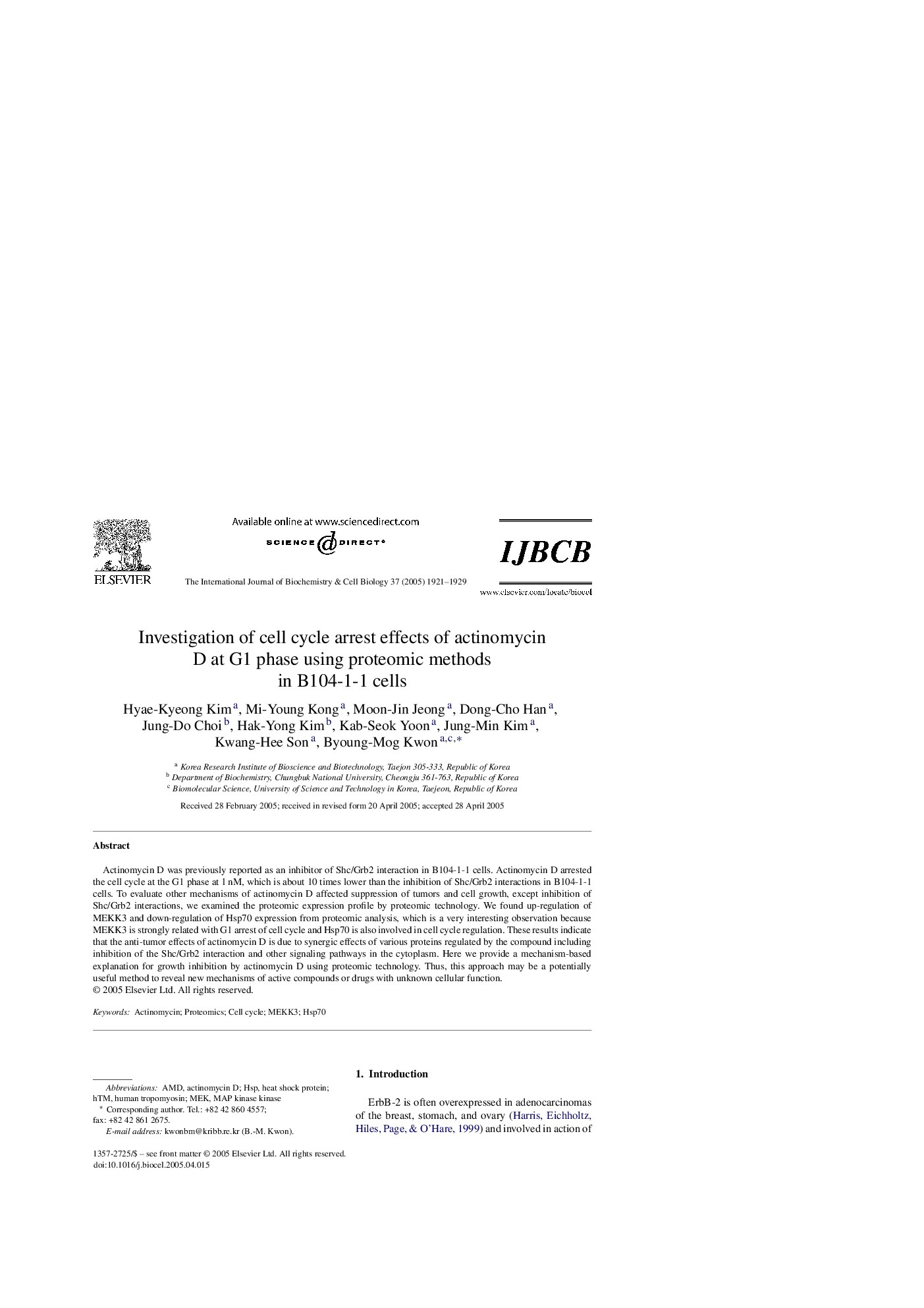| Article ID | Journal | Published Year | Pages | File Type |
|---|---|---|---|---|
| 9889964 | The International Journal of Biochemistry & Cell Biology | 2005 | 9 Pages |
Abstract
Actinomycin D was previously reported as an inhibitor of Shc/Grb2 interaction in B104-1-1 cells. Actinomycin D arrested the cell cycle at the G1 phase at 1Â nM, which is about 10 times lower than the inhibition of Shc/Grb2 interactions in B104-1-1 cells. To evaluate other mechanisms of actinomycin D affected suppression of tumors and cell growth, except inhibition of Shc/Grb2 interactions, we examined the proteomic expression profile by proteomic technology. We found up-regulation of MEKK3 and down-regulation of Hsp70 expression from proteomic analysis, which is a very interesting observation because MEKK3 is strongly related with G1 arrest of cell cycle and Hsp70 is also involved in cell cycle regulation. These results indicate that the anti-tumor effects of actinomycin D is due to synergic effects of various proteins regulated by the compound including inhibition of the Shc/Grb2 interaction and other signaling pathways in the cytoplasm. Here we provide a mechanism-based explanation for growth inhibition by actinomycin D using proteomic technology. Thus, this approach may be a potentially useful method to reveal new mechanisms of active compounds or drugs with unknown cellular function.
Keywords
Related Topics
Life Sciences
Biochemistry, Genetics and Molecular Biology
Biochemistry
Authors
Hyae-Kyeong Kim, Mi-Young Kong, Moon-Jin Jeong, Dong-Cho Han, Jung-Do Choi, Hak-Yong Kim, Kab-Seok Yoon, Jung-Min Kim, Kwang-Hee Son, Byoung-Mog Kwon,
